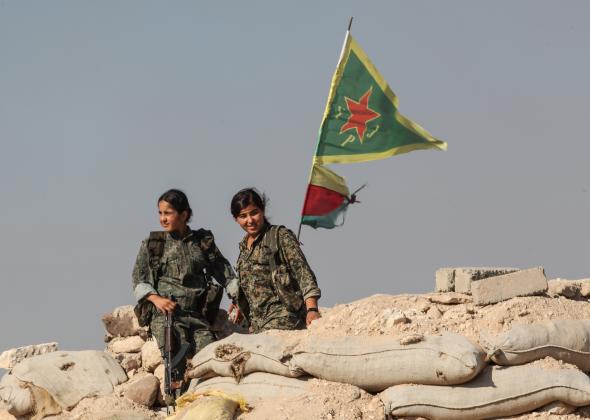The U.S. has gotten very good at killing terrorists from the air, but pushing them back on the ground has been tougher. This was underscored today with the Pentagon’s announcement that a U.S. drone strike near Mosul, Iraq, had killed Ali Awni al-Harzi, a midlevel ISIS operative described as spearheading the group’s outreach in North Africa. Harzi had also been named as a person of interest in the 2012 attacks on the U.S. Consulate in Benghazi. The strike comes a few weeks after the fall of the city of Ramadi called into question the Obama administration’s reliance on local forces to combat ISIS and prompted the president to escalate the U.S. troop presence in a conflict he has long hoped to avoid.
Some groups have been making progress on the ground, though. Kurdish fighters in northern Syria said today that they had captured the town of Ain Issa, about 30 miles from the Islamic State’s “capital” of Raqqa. Last week they captured the town of Tal Abyad, near the Turkish border, cutting off one of ISIS’s main supply routes. Meanwhile in Iraq, the Shiite fighters sent to reinforce the Iraqi military in Anbar after the fall of Ramadi seem to be stalling ISIS’s momentum.
These setbacks for ISIS are certainly welcome developments. But there are also worrying signs that the strange coalition of unlikely allies and in some cases outright enemies cobbled together to fight the group is fraying at the edges. The recent Kurdish successes, which Kurds openly hope will finally lead to the creation of an independent Kurdish state, have alarmed the leaders of Turkey, which is seeking to tamp down nationalism within its own Kurdish population. The YPG, the Kurdish militia fighting in Syria, is aligned with the PKK, the rebel group that fought the Turkish government for decades. Turkish President Recep Tayyip Erdogan was openly critical of the victory over ISIS at Tal Abyad last week, saying it “could lead to the creation of a structure that threatens our borders.” Erdogan’s reluctance to help the Kurdish forces battling ISIS in the bloody battle of Kobani last year was one factor that helped a Kurdish party make a political breakthrough, at Erdogan’s expense, in this month’s Turkish elections.
Between Turkey’s suspicion of the Kurds and Sunni Arab governments’ suspicion of the Shiite militias, it’s reasonable to wonder just how long the uncomfortable anti-ISIS coalition can hang together. With U.S. officials now openly discussing the possibility that Iraq may not survive this conflict as a unified country, it seems quite likely that more conflicts over land and resources will emerge if and when ISIS is ever defeated.
For one more example of the conflicts that are emerging, consider the case of the Druze Israelis, who are heavily represented in the country’s military and police, who have been attacking IDF ambulances carrying wounded Syrian rebels in northern Israel in recent days over reports of attacks on Druze villages in Syria. A few months ago, it seemed like one silver lining of the ISIS war might have been that previously antagonistic groups in the Middle East were uniting against a common enemy. Instead, the fight appears to be worsening some long-running tensions that many didn’t even realize existed.
